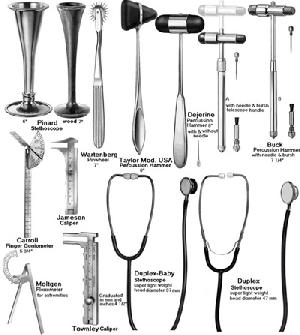
Despite all the best intentions, the federal Institute of Medicine is trying to make proposals for CME’s future based on facts from the distant past. In its 2009 report on Conflict of Interest in Medical Research, Education, and Practice, the IOM released a report (underwritten by the Josiah Macy, Jr. Foundation) calling for an end to educational grants from pharmaceutical and medical device manufacturers.
Some of the report’s conclusions (Eliminate non-educational interventions from university campuses) make sense. But when you dig into the report’s findings on CME, you find mostly stale data and arguments that do not take into account the dramatic regulatory and accreditation board rules now required to ensure that CME excludes industry influence and addresses all conflicts of interest.
Most important, the report generally confuses Certified CME with other forms of so-called “education” and relationships that have nothing to do with CME. To be clear, Certified CME programs only are those developed by accredited providers of CME in compliance with all ACCME standards and rules, as well as FDA and Health and Human Services Office of Inspector General Compliance Guidance requirements that ensure CME is “independent from promotional influence.”
But by trying to address conflicts in research, education, and practice, the IOM mistakenly blends Certified CME with non-CME interactions. The result? Confusion and outdated data regarding CME, not clarity.
Some examples:
- In the report’s table 5-1, the IOM mentions that drug companies provide lunches, pens, snacks, and dinners for medical students in the third year of schooling. The report complains of “non-educational” interventions in the learning environment. Worthy complaint, but the comments deal with grad school and do not apply in the least to Certified CME activities that occur after physicians are practicing.
- The IOM report cites studies about “influence” by manufacturers that date back to 1986. Oddly enough, the report does not mention at all the academic literature survey on bias produced by the ACCME in 2008 concluding that “no empirical evidence” exists to support a connection between industry grant funding for Certified CME and bias.
- In a flagrant violation of the principle of “evidence-based” reporting, the IOM report includes a “personal account” in which an unknown person states that CME speakers were hired on the basis of their support for a “sponsor’s message.” If this were the case, it would be a clear violation of ACCME rules and would cause the accredited provided to either be placed on probation or lose its accreditation immediately. The report fails to mention that accredited providers must collect audience evaluations regarding any possible bias and have policies to address any such issues. In addition, the ACCME has a process for handling complaints and has implemented a monitoring system to detect and address any bias. Last, nobody seems to realize that physicians are not compelled to attend any CME program (they can get a year’s worth of required credits over a few days at a single society annual meeting). Physicians attend CME because it’s useful and needed, given the current explosion of healthcare information. Physician CME attendees also are required to evaluate programs for bias, and this information is easily obtained.
- The IOM report claims that bad CME programs were developed related to the federal Neurontin and Vioxx cases. The problem? The problems cited by the IOM report are specifically addressed and prohibited by current rules (the CME enterprise has addressed past problems).
- The IOM report slams the ACCME by citing 2001 and 2003 articles stating that the ACCME Standards for Commercial Support of CME activities do not deter industry influence. Two problems: 1) the original articles did not include evidence to support the claim, and 2) the ACCME updated the Standards in 2004, as well as several new definitions, policies and rules approved in subsequent years, ensure that Certified CME is independent from promotional influence.
The CME enterprise has undergone many positive changes during the past five years. It’s time organizations, such as the IOM, understands and acknowledges them.
This commentary was written by Stephen Lewis the President of the North American Association of Medical Education and Communications Companies. Early in his carrier Steve served as press secetary for US Senator Thimothy Worth (D-CO).

